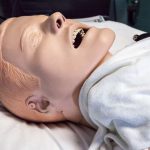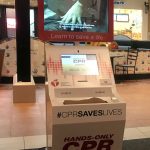When it comes to TV shows and dramas, we watch many fictional things such as zombies, talking animals, people having superpowers and other things. What we actually forget is that they are just a source of entertainment not reality.
These shows focus on a hero very much. Let’s imagine a doctor who was passing by and saw someone having a cardiac arrest. What they show is that the doctor gives him CPR and after that, he feels totally fine. Now the question arises is that should we also react the same way as shown in these dramas?
Dr. Howie Mell who is an emergency room physician in suburban Chicago and also been a paramedic as well as firefighter talked about these shows. He said, “Movies very rarely get it right. They need to create drama and tell a story in a succinct and cohesive manner. That doesn’t always lend itself to an accurate portrayal.”
“Popular culture can play a significant role in patient empowerment,” said Dr. Neil Shulman, humorist as well as the author and associate professor of medicine at Emory University in Atlanta.
These plays show how easy and effective is CPR but in reality, it is not the same. According to the research, people are most likely to have a cardiac arrest outside the hospital. CPR should be given immediately because the probability of survival is high if CPR is immediately given.
Mell said, “In the best circumstances, maybe one or two out of 10 are going to survive. But the public believes it’s 9 out of 10. Hollywood changes the perception.”
CPR Training
One thing is for sure is that to increase the saving rate, people should widespread CPR training. These TV dramas and shows can help by encouraging people for CPR training.
Mell said, “You are far better pushing on the chest of someone who doesn’t need it than standing around trying to decide if it’s necessary.”
In 2015 the American Heart Association included Hands-Only CPR in its guidelines to allow those who don’t know how to give “rescue breaths” — or are uncomfortable doing it — the option to provide only chest compressions until qualified help arrives. (For children, both chest compressions and rescue breaths are still recommended.)
Source: https://www.usnews.com/news/health-news/articles/2019-02-15/aha-news-heart-stopping-drama-of-on-screen-cpr-doesnt-always-reflect-reality





